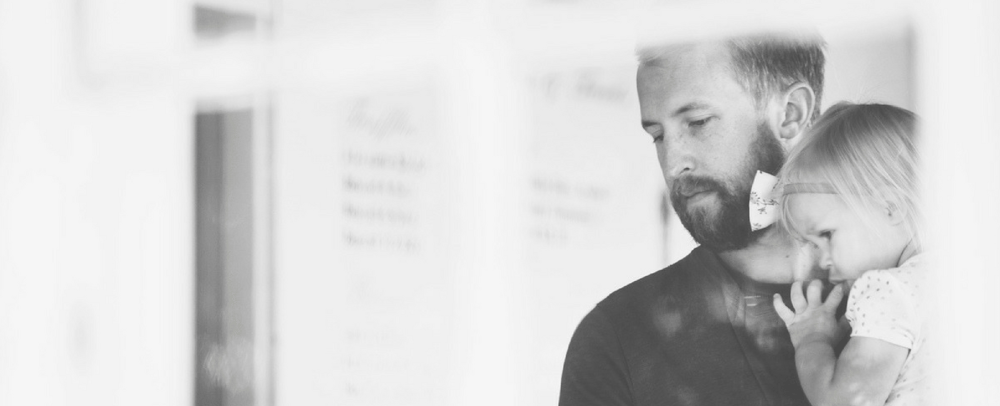My husband and I come from very different families. Like most newlyweds, we rooted around for what traditions we might maintain, where we needed to be intentional, and what ways we might burst out of our families’ molds and do something new. We read books. We prepared and enriched. We asked lots of questions of mentors and friends.
The honest truth is that some questions have no perfect answers no matter how long you search. For us, the title question was one of them. My husband attests that he never heard his parents argue. They resolved discussions quickly or took it into the bedroom away from little ears. My parents raised the roof with lively discussions that were sometimes humorous and sometimes less than pretty. Dave and I have attempted a happy medium, but the question continuously remains in the back of our minds—should we argue in front of the kids or take it elsewhere? Are we destroying their image of godliness by our disagreements or showing them healthy reality?
I’d like to share with you not an answer, but four things I have learned that may help you contemplate this in your own marriage and family.
Home should be a safe place.
There are discussions and there are disagreements; there are arguments and there is just plain ugliness. It’s important to distinguish between whether we have a difference of opinion that we need to work through versus destroying one another with hurtful words and actions, whether intentional or unintentional. Talking through things is the cleaving work of marriage. Snipping and selfishness is sinful. Children may not developmentally understand every word being said, but they hear and take to heart far more than we know. One of our first questions in parenting should always be, “How can we help them know that they are safe and loved?” This is the good work of family in a child’s life. This stability helps them to grow, to do better in school and relationships, and to become responsible adults. Keeping home and arguments safe for children helps them to see who God the Father is, as their source of protection and Lord over all things.
Home should be a grace-filled place.
Safety isn’t the only thing important for children. Let’s face it, the world isn’t always a safe place. As much as we try to create the bubble of protection for our kids, the world is scary, life happens, and tragedy can strike every home. Children are looking for big answers to big problems, just as we are. Another question to ask in parenting is, “How can we help them know grace?” The best way to share the grace of Christ Jesus in your home is to share His living Word, the Bible, together, as well as to share His Word in confession and forgiveness with one another. In this light, remember that disagreements and arguments are great opportunities to confess our own sinfulness and to receive forgiveness. Coupling mistakes with confession and forgiveness is the Holy Spirit working God’s grace in our homes. Sin unrecognized or unaddressed can leave us feeling guilty and miserable. Opportunities for confession actually make our homes uplifting and a grace-filled harbor in an ever-changing world.
Most of what we learn in life, we learn within the context of a family.
All we have of grace and safety is received from Christ, yes, but there is also an element of living in that active Word that is learned from those we are closest to. Just as the cycle of abuse can be passed down from generation to generation, so can cycles of grace and forgiveness and the art of arguing well. Arguing well looks like kind words and thoughtful speech, listening as well as speaking, and asking lots of questions to understand another person’s perspective. This does not come naturally. Daily our old Adam is drowned, and we are reminded that in our Baptisms we rise with Christ. God designed the family to be the place where we spend most of our time learning and growing, understanding our vocations and contributing to the work of the Kingdom.
Lastly, consider your own children and their individual needs.
Children are very much individuals. They have their own ideas and their own needs. If you have a timid child, arguing or even hotly debating something in front of them may be overwhelming for them. Other children might need more from us in the form of guidance and modeling patience or thinking before they speak. Being aware of our children as individuals will help us be able to shine Christ to them in ways in which His message will be clearest to them.
The Book of Nehemiah applies here well. It shares the account of many people of Israel coming home and receiving the Word of the Lord after a long dry spell in exile.
“And Ezra opened the book in the sight of all the people, for he was above all the people, and as he opened it all the people stood. And Ezra blessed the LORD, the great God, and all the people answered, “Amen, Amen,” lifting up their hands. And they bowed their heads and worshiped the LORD with their faces to the ground. Also Jeshua, Bani, Sherebiah, Jamin, Akkub, Shabbethai, Hodiah, Maaseiah, Kelita, Azariah, Jozabad, Hanan, Pelaiah, the Levites, helped the people to understand the Law, while the people remained in their places. They read from the book, from the Law of God, clearly, and they gave the sense, so that the people understood the reading” (Nehemiah 8:5–8 ESV).
Active parenting is a way of “giving the sense” of God’s Word to His children. We speak the words of the Bible, and we show them what these mean in our actions toward one another. It is a unique gift, a difficult challenge, and worthwhile work.
Father, help us as we raise the children that You have entrusted to us, grandparent the next generation, and tend to our marriages. Fill our homes with Your Spirit, guide us with Your Word, and teach us Your ways. Thank You for sending Jesus Christ to die and rise so that we may have forgiveness and new life to share with all the saints, including those in our own homes. We rest in Your protection, Your wisdom, and Your tender care. In the name of Jesus Christ, Immanuel, we pray. Amen.













